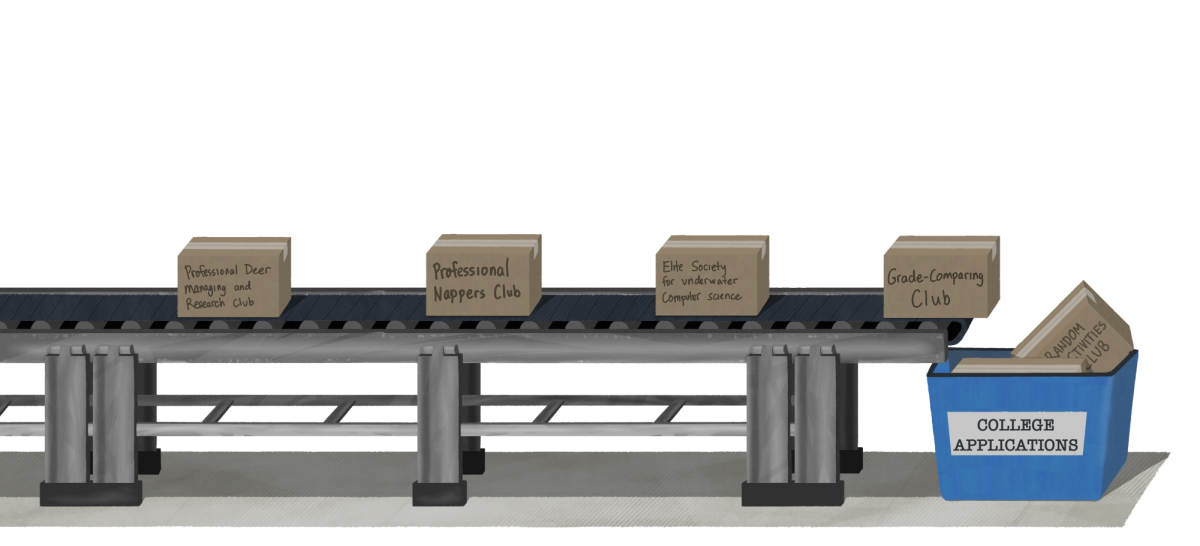Tipping, whether for quality service or gratuities at a restaurant, has been a norm in many places around the world, including the United States. The practice has been around for decades, but has recently become excessive due to the dramatic increase in expected tipping rates.
Originating in Europe during the Middle Ages, tipping was a way for the wealthy to pay servants extra money for excellent service. Slowly, however, tipping in London became present in coffeehouses and other establishments. Eventually reaching US in the 1800s through wealthy Americans who had just discovered this custom on a journey to Europe, tipping has become increasingly popular and has firmly rooted itself in almost all establishments in the country.
Tipping has been disliked since its inception. It came with many racial and economical problems, including many white store owners wanting to profit off of black labor by replacing wages with tips. The many issues that came with tipping prompted journalists to describe it as un-American.
Additionally, labor leaders opposed it so much that it was outlawed in different states including Iowa, Tennessee and South Carolina in 1915. This controversy in the United States shows how much of an issue tipping is and has been.
One downside of tipping is that it enables employees to be paid less, preventing them from earning the minimum wage they deserve.
Employers achieve this by paying tipped workers a wage that reaches the federal minimum wage only when
combined with tips. According to the National Restaurant Association, it is estimated that every $1 increase in the federal tipped wage could cause a 6.1% decrease in employment and up to a 5.6% loss in quarterly earnings for employees. The decrease in employment due to the slow transformation of wages into tips has become another issue resulting from modern tipping standards.
Not only has tipping culture negatively affected the pay rates of employees, it has also proven to be a disservice for customers. The custom of gratitude is now a demand rather than a choice within the past decade.
Changes in the economy, such as inflation, have also contributed to why tipping has gotten out of hand. This phenomenon became more apparent during the pandemic, when many businesses began “guilt-tipping” customers to support service industry workers at a time of crisis. According to a poll from Talker Research, the average person tips $37.80 a month and $453.60 a year due to guilt-induced gratuity, with 26% feeling they are always or often forced to tip more than they would like. If someone truly wished to tip, they wouldn’t feel unhappy to do so. Additionally, roughly spending $500 a year on undeserving service shows how excessive tipping culture has gotten. Additionally, many restaurants have turned to “auto-gratuity,” which further eliminates customer decision. With this format, customers are automatically charged an additional 15-20% of their total bill regardless of the quality of service provided. Policies like these contribute to why tipping is losing its definition. It diverges negatively from being a token of appreciation to a method of forcing people to pay extra.
In conjunction with auto-tipping, “tip-inflation” is a term that describes the increase in expected tips due to inflation. Tipping is based on a certain percentage of a total cost of a product or service, and when the price for that product increases, so does the tip amount. According to financial media company Investopedia, digital payment systems with screens that display preset tipping recommendations, often start at 20%. The lowest tip amount being 20% forces someone to pay an amount they may not feel comfortable paying and contributes to extreme tipping rates.
Once a method to express gratitude, tipping has slowly become a way to unfairly profit off of people. Tipping has strayed so far from its original purpose that it has taken on a new form of consumerism, a way for businesses to increase their revenue without charging upfront. An increase in tipping culture due to inflation has caused people to feel obligated to spend their hard-earned money on service they’ve already been charged for. This method of forcing gratitude has reached a tipping point, and therefore needs to end.












